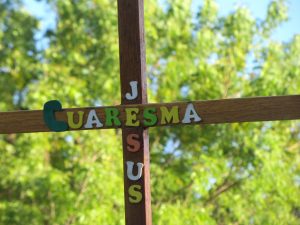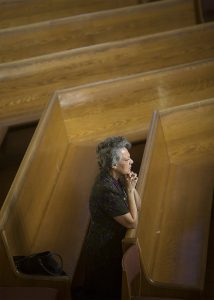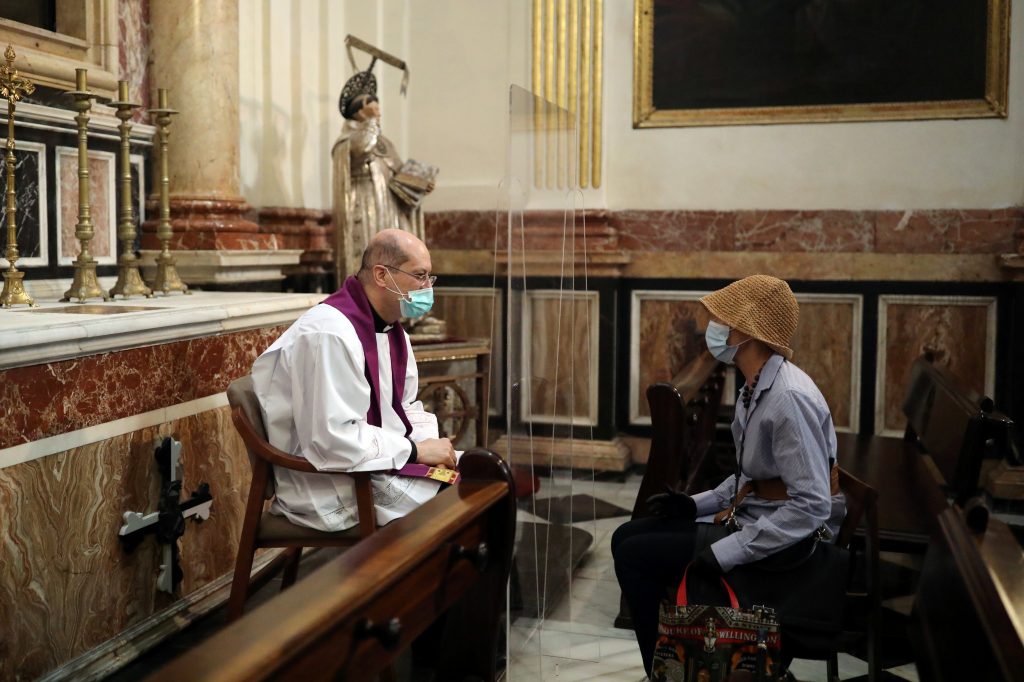Last year Lent arrived with lockdown and imposed severe disciplines on everyone, regardless of their level of religious observance.
The more devout, however, saw the new hardships as suitable to the season. The most popular meme bore the caption: “This Is the Lentiest Lent I’ve Ever Lented.”
Most years we had faced simpler choices of what to give up. Maybe sweets or television. In 2020, however, we learned to fast from unaccustomed things, like social contact, restaurants, and toilet paper. And we had no choice in the matter. It was Lenty indeed.
Now we enter our second pandemic Lent, and it probably isn’t looking as Lenty as the last. We’ve adjusted to the restrictions, at least somewhat, and in some places conditions have improved enough to allow greater freedom.
We should nonetheless lean into the season, in all its 2021 peculiarity. Knowing what we learned from last year, we should be intentional about living a better Lent this year.

Lent and lockdown are related historically and etymologically.
The word “quarantine” was coined originally for the 40-day period a ship was kept in isolation at port.
The policy arose during the Black Death of the late 14th century, when bubonic plague killed off around half of the population in Europe. Ships stayed in dock until the locals could ascertain that there were no cases of the disease on board.
“Forty days” in Italian is “quaranta giorni,” which yielded quarantine in English.
Well, Lent, like quarantine, is also a 40-day period, and in some languages the roots still show. The season is called “Quaresima” in Italian, “Cuaresma” in Spanish, “Carême” in French. For people who speak the Romance languages, Lent and quarantine are obviously close cousins. Each resembles the other.
And their purposes are similar. Both Lent and quarantine are designed to test us and improve our health — quarantine, our physical health; and Lent, our spiritual health.
Christian tradition defines spiritual health as the preference for God over all created things. It’s not that the things of the world are bad. They are, in fact, very good, precisely because God created them. He created them, moreover, to serve us and delight us.
They pose problems when we begin to prefer the creatures to their Creator. We’d rather eat and drink to excess than honor God. We’d rather amass wealth than turn to the Lord in prayer. We’d rather entertain our eyes with sensual images than conform to the commandments.

Our early Christian ancestors designed the Lenten observance in order to retrain our souls and our bodies, our thoughts, and our senses. By small hardships, freely endured, we strive to recover the integrity that God intended for us. At the beginning of Lent, we pledge to conform to the graces God gives us.
The means by which we do this are three: prayer, fasting, and almsgiving. Our Lenten observance should include some resolution for improvement in each area.
This year, in our second COVID-19-conditioned Lent, we might consider developing a personal program that’s different from those of past years. We might think about the needs and challenges of our pandemic world and the unique Lenten opportunities they present.
Prayer. This topic needs little introduction. If you want prayer support, you’ll find it in many online groups and email lists that have multiplied in the Catholic world during the pandemic. So many people are praying daily together in virtual ways and interceding for one another. Search the term “quarantine” together with “rosary” or “divine mercy” and you’ll begin to see the options available to you. Your own parish may already have something in place.
Fasting. There are many ways to fast. Some people limit their media consumption during Lent. Others eliminate meat for the season or stop eating between meals. For many, Lent is primarily their annual effort to lose the weight they gained from Christmas overindulgence.
All of those are valid choices. But we mustn’t forget the reason why we’re fasting. It’s not primarily to lose weight. It’s in order to make our lives more like the life of Jesus, who fasted in the desert and who freely accepted suffering for our sake.
Right now is a good time for us to consider where we’ve found consolation during the lockdowns. If we’ve been looking for it in places other than God, then perhaps we need to redirect our attention.
The Journal of the American Medical Association reported recently that alcohol consumption in 2020 increased 14% for all adults. For women, binge drinking went up an astonishing 41%.

Alcohol is one way people have found to exercise a preference for something other than God. It is perhaps the easiest to measure. But there are other objects we may have chosen — other creatures we’ve used for the love and consolation that only our Creator can give. In Lent it’s good for us to ask ourselves what those indulgences might be, and then strive, with God’s help, to eliminate them.
Almsgiving. In times of pandemic we need to reevaluate our ideas of poverty and need, so that we might adjust our plan for charitable giving. It’s good for us to give money to feed the hungry, clothe the naked, and house the homeless. We shouldn’t stop doing that.
But we should also make personal plans to relieve the forms of poverty that are peculiar to times of quarantine. So many people today are experiencing painful loneliness and isolation. The situation is especially acute for elderly people who are living far from family — or who have no family — or who have outlived their friends.
Reaching out to them can mean far more these days than writing a check for millions of dollars. Can we arrange socially distanced meetings outdoors or in order-safe spaces? Can we communicate more often by videoconference or phone, or even by writing letters in longhand? Can we do something daily, or every other day? Even something small and simple can break the monotony of a lonely person’s day.
In these days, these can be heroic and sacrificial acts of charity that genuinely make a difference. They require planning. They can be difficult and frustrating because of the limitations of age and circumstance. But they fulfill a need that Pope Francis has identified as urgent: the need for us to “look into the eyes of the poor.”
Lent is not an ordinary time of year, and this year it’s made more extraordinary by the pandemic. Make it extraordinary in its effects by doing it differently this year.

